关于新疆的24个谎言与真相 Fact Check: Lies on Xinjiang-related issues versus the truth
新华网 2021-02-07 09:54

谎言十三:中国政府把新疆少数民族儿童送进寄宿制学校,“强迫”其与父母分离。
Lie No. 13: The Chinese government sends children of ethnic minorities in Xinjiang to boarding schools and "forces" them to be separated from their parents.
事实真相:
Fact check:
◆《中华人民共和国义务教育法》规定:“县级人民政府根据需要设置寄宿制学校,保障居住分散的适龄儿童、少年入学接受义务教育”。新疆地域辽阔,村镇之间距离较远,学生上学很不方便,学习质量难以保证,家长接送孩子上下学负担很重。为解决这一问题,早在上世纪80年代,新疆就建设了400所寄宿制中小学。近年来,新疆维吾尔自治区与全国一样,按照国家要求对寄宿制学校建设进行科学规划、合理设置,严格遵守国家和自治区相关建设标准,各类学习生活设施设备齐全。实践证明,开展寄宿制教育,已成为新疆加快教育现代化、助力精准脱贫的有力举措,受到各族学生家长的积极拥护。
The Compulsory Education Law of the People's Republic of China stipulates: "Where necessary, the people’s government at the county level may set up boarding schools to ensure that school-age children and adolescents who are dwelling in scattered areas receive compulsory education." Xinjiang is a vast region with long distances between villages and towns, and it is not convenient for some students to go to school, making it hard to ensure their study quality. Parents have a heavy burden to transport their children to and from schools. To solve this problem, Xinjiang built 400 primary and secondary boarding schools in the 1980s. In recent years, Xinjiang, like the rest of the country, made scientific plans and reasonable arrangements for boarding school construction. They comply with the relevant construction standards of the state and the autonomous region to ensure sufficient learning and living facilities. Time has proved that boarding education has become an effective measure to accelerate education modernization and aid targeted poverty alleviation in Xinjiang. Parents of students of all ethnic groups support the boarding school model.
◆新疆寄宿制学校建设是新疆从自治区实际出发,采取的一项旨在教育扶贫、提高义务教育质量的安排,有助于提高少数民族中小学校教育现代化水平,促进新疆各民族的交往交流。新疆开办寄宿制学校的做法,与中国其他地区,与世界其他国家开办此类学校没有本质不同。
-- The construction of boarding schools is an arrangement made by Xinjiang in light of the actual conditions of the autonomous region to alleviate poverty through education and improve the quality of compulsory education. It helps improve education modernization at primary and secondary schools of ethnic minorities and promote exchanges among different ethnic groups in Xinjiang. The practice here is not fundamentally different from that of other parts of China or the rest of the world.
谎言十四:新疆学校用汉语取代民族语言,对他们进行“洗脑”。新疆禁止少数民族学生使用本民族语言,关闭维吾尔语学校。
Lie No. 14: Schools in Xinjiang replace ethnic languages with Chinese to "brainwash" the students. Xinjiang has banned ethnic minority students from using their own languages and closed schools of the Uygur language.
事实真相:
Fact check:
◆《中华人民共和国宪法》《中华人民共和国国家通用语言文字法》规定,公民有学习和使用国家通用语言文字的权利,国家为公民学习和使用国家通用语言文字提供条件。新疆在推进国家通用语言文字教育的同时,按照国家中小学课程设置方案要求,也开设了少数民族语言文字课程,充分保障了少数民族学生学习本民族语言文字的权利,有效促进了少数民族语言文化的传承发展。
The Constitution of the People's Republic of China and the Law of the People's Republic of China on the Standard Spoken and Written Chinese Language stipulate that citizens have the right to learn and use the standard Chinese spoken and written language. The state provides them with related conditions. While promoting education in the Chinese language, Xinjiang also offers courses in the spoken and written languages of ethnic minority groups in accordance with the national curriculum plan for primary and secondary schools. This safeguards the right of students from ethnic minority groups to learn their own spoken and written languages. It also effectively promotes the inheritance and development of ethnic minority languages and cultures.
◆新疆维吾尔自治区使用7种语言开展中小学教育。目前,新疆在学前和中小学全面普及国家通用语言文字教学、加授本民族语言文字的双语教育。学会使用国家通用语言文字,可以更好地融入和适应现代社会,不论学习、找工作,还是交流对话、经商务工都会有更多的便利。
-- Primary and secondary education in Xinjiang is conducted in seven languages. At present, preschools and primary and secondary schools across Xinjiang provide bilingual education in the national standard spoken and written language, as well as one ethnic language. Learning to use the national standard language can help people better integrate and adapt to modern society. It brings more convenience in studies, job hunting, communication, business, and work.
谎言十五:新疆以打击恐怖主义为借口镇压少数民族。
Lie No. 15: Xinjiang suppresses ethnic minorities under the pretext of fighting terrorism.
事实真相:
Fact check:
◆据不完全统计,自1990年至2016年年底,民族分裂势力、宗教极端势力、暴力恐怖势力在新疆策划实施了数千起暴力恐怖案(事)件,造成大量无辜群众被害,数百名公安民警殉职,财产损失无法估算,给新疆各族人民带来了深重灾难。
Incomplete statistics show that from 1990 to 2016, ethnic separatists, religious extremists, and violent terrorists plotted and conducted several thousand violent terrorist acts. They killed many innocent civilians and several hundred police officers and caused immeasurable property losses. These terrorist activities inflicted untold suffering on the people of various ethnic groups in Xinjiang.
◆面对严峻复杂的反恐形势和各族群众对打击暴力恐怖犯罪、保障生命财产安全的迫切要求,中国新疆积极响应《联合国全球反恐战略》等一系列反恐文件,依照国家反恐法律和自治区相关法律法规,坚持不与特定地域、民族、宗教挂钩,对侵犯公民人权、危害公共安全、破坏民族团结、分裂国家的暴力恐怖活动进行严厉打击。自2014年以来,共打掉暴恐团伙1588个,抓获暴恐人员12995人,缴获爆炸装置2052枚,极端主义渗透得到有效遏制,社会治安状况明显好转,最大限度保障了各族人民的生命权、健康权、发展权等基本权利,新疆已连续4年多未发生暴力恐怖案件。
-- In the face of a complicated counter-terrorism situation and the demands from people of all ethnic groups to stop terrorism, China's Xinjiang region has taken a series of active measures. Responding to the United Nations Global Counter-Terrorism Strategy and other counter-terrorism resolutions, Xinjiang has upheld the principle of not linking terrorism with any particular region, ethnic group, or religion. It acted within the law to crack down on violence and terrorist activities that violate human rights, endanger public security, undermine ethnic unity, and aim at separating the country. Since 2014, a total of 1,588 violent and terrorist groups have been taken out, 12,995 violent terrorists arrested, and 2,052 explosive devices seized. Such operations have effectively curbed the infiltration of extremism, significantly improved public security, and protected the right to life, right to health, right to development, and other basic rights of people of all ethnic groups. Xinjiang has reported no violent terrorist cases for more than four consecutive years.
谎言十六:新疆实行“访惠聚”举措,“民族团结一家亲”和民族团结联谊等活动是为了介入并监视维吾尔家庭。
Lie No. 16: The "fanghuiju" campaign, in which civil servants are dispatched to grass-roots communities to offer help to people of various ethnic groups, as well as the "ethnic unity campaign" and solidarity activities among cadres and people of different ethnic groups, are all adopted by Xinjiang with the aim of intervening in and monitoring Uygur families.
事实真相:
Fact check:
◆2016年以来,新疆在各族干部群众中开展“民族团结一家亲”和民族团结联谊活动,110多万各族干部职工与160多万各族群众结对子、交朋友、认亲戚,其中既有汉族干部与包括维吾尔族在内的少数民族群众结对认亲,也有包括维吾尔族干部在内的少数民族干部与汉族群众结对认亲。
Xinjiang has been carrying out the "ethnic unity campaign" and solidarity activities among cadres and people of different ethnic groups since 2016. More than 1.1 million cadres and workers of different ethnic groups have paired up with 1.6 million people of different ethnic groups as "relatives" and made friends with each other. Among them, Han cadres have paired up with ethnic groups, including the Uygur. Cadres of ethnic minority groups, including the Uygur, have also paired up with Han people.
◆各族干部群众交往交流交融,相互尊重,相互帮助,广大干部职工充分发挥自身特长优势,积极引导基层群众拓展致富门路,帮助他们解决就医、就业、就学等生产生活中的实际困难,办了许多得民心顺民意的好事实事。据统计,参加“民族团结一家亲”和民族团结联谊活动的干部职工为基层群众捐款9.4亿元,捐物4921万件,办好事实事1803万件。
-- Based on mutual exchange, communication, integration, respect and help, cadres and workers of different ethnic groups have given full play to their own advantages, guiding the grass-roots residents to expand their approaches to prosperity, and helping them solve difficulties in healthcare, employment and education, and doing many good deeds that have won public support. According to the statistics, the cadres and workers participating in the "ethnic unity campaign" and solidarity activities among cadres and people of different ethnic groups have donated 940 million yuan and more than 49 million material items to the grass-roots people, accomplishing some 18 million deeds that benefit locals.
谎言十七:新疆通过无处不在的摄像头、手机APP、互联网综合信息等高科技手段监控维吾尔族穆斯林。
Lie No. 17: Xinjiang monitors Uygur Muslims through ubiquitous cameras, mobile phone apps, the internet and other high-tech means.
事实真相:
Fact check:
◆新疆依法在城乡公共区域、主要道路、交通枢纽等公共场所安装摄像头,目的是为了提高社会治理水平、有效预防和打击犯罪,这些措施增强了社会安全感,得到了各族群众的普遍支持。相关措施不针对任何特定民族。
In accordance with the law, Xinjiang has installed cameras in urban and rural public areas, major roads, transportation hubs and other public places in order to improve social governance and effectively prevent and crack down on crime. These measures have enhanced social security and won widespread support from people of all ethnic groups. The measures do not target any particular ethnic group.
◆运用现代科技产品和大数据方法提升社会治理水平是国际社会通行做法。根据《南华早报》报道,最新研究发现,监控摄像头数量排名全球前十的国家包括英国、德国、法国、荷兰等。
-- The use of modern scientific and technological products and big data to improve social governance is a common practice in the international community. According to the South China Morning Post, a new study found that Britain, Germany, France and the Netherlands are among the top 10 countries in terms of the number of surveillance cameras in the world.
谎言十八:中国驻外使领馆不为海外维吾尔族人换发护照,迫使其回国接受法外拘留或监禁。
Lie No. 18: Chinese embassies and consulates have refused to renew the passports of overseas Uygur people, forcing them to return home to face extrajudicial detention or imprisonment.
事实真相:
Fact check:
◆中国公民的人身自由和出入境权利依法受到保护。只要属于中国籍公民,且自己承认是中国公民,未违反中国法律法规的,均可向居住地的中国使领馆申请换发或补发护照。
Chinese citizens' personal freedom and rights of exit and entry are protected by law. As long as they are Chinese nationals and admit themselves that they are Chinese citizens, and do not violate Chinese laws and regulations, they can apply to the Chinese embassy or consulate where they live for the renewal or replacement of passports.
◆中国驻外使领馆按照《中华人民共和国出境入境管理法》《中华人民共和国护照法》等法律法规办理相关业务,依法保障包括各民族在内的海外华侨华人合法权益。向中国驻外使领馆提出换发或补发护照申请的中国新疆籍人员,经审批符合有关法律的,已获得受理并批准。
-- Chinese embassies and consulates conduct their services in accordance with the Exit and Entry Administration Law of the People's Republic of China, the Passport Law of the People's Republic of China and other laws and regulations to protect the legitimate rights and interests of overseas Chinese of different ethnic groups. Chinese citizens from Xinjiang who apply for the renewal or replacement of passports at Chinese embassies and consulates have been accepted and approved after being examined to comply with relevant laws.









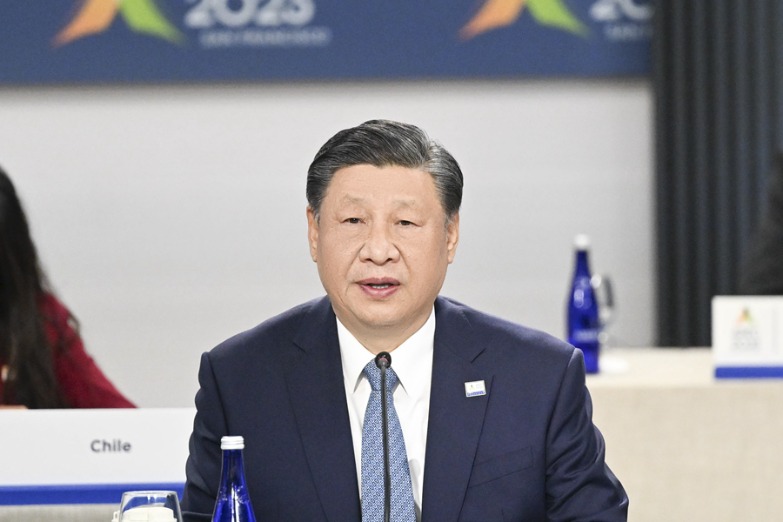
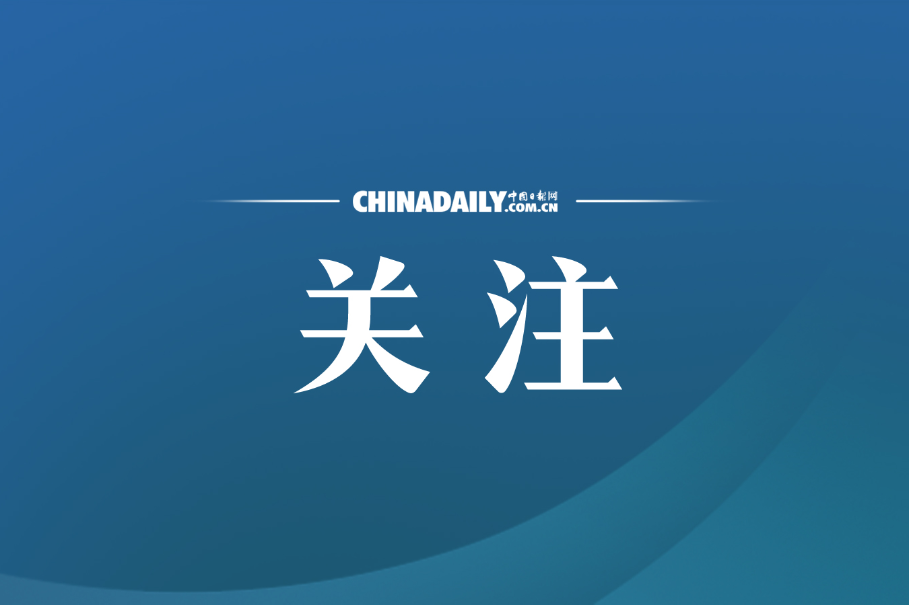
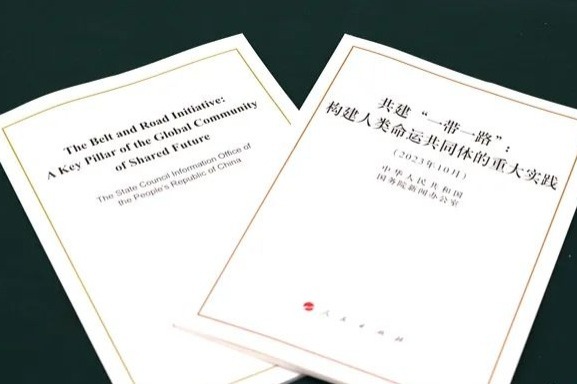
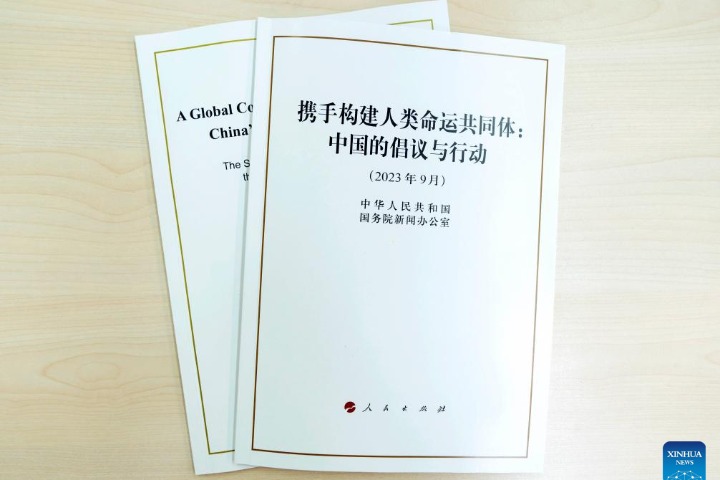
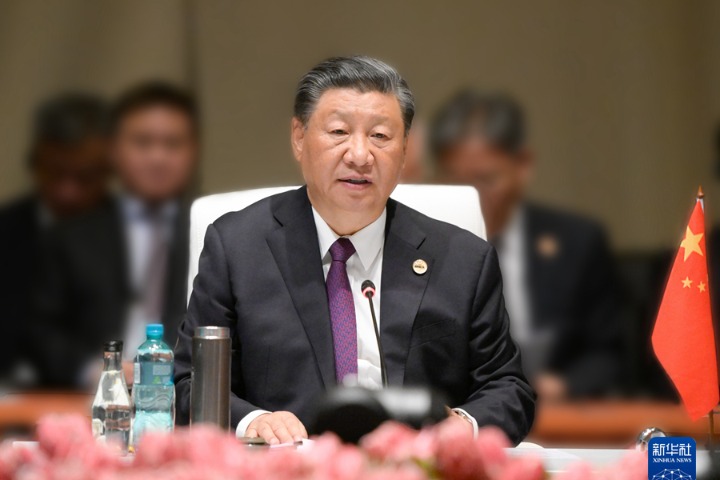



 英语点津微信
英语点津微信 双语小程序
双语小程序